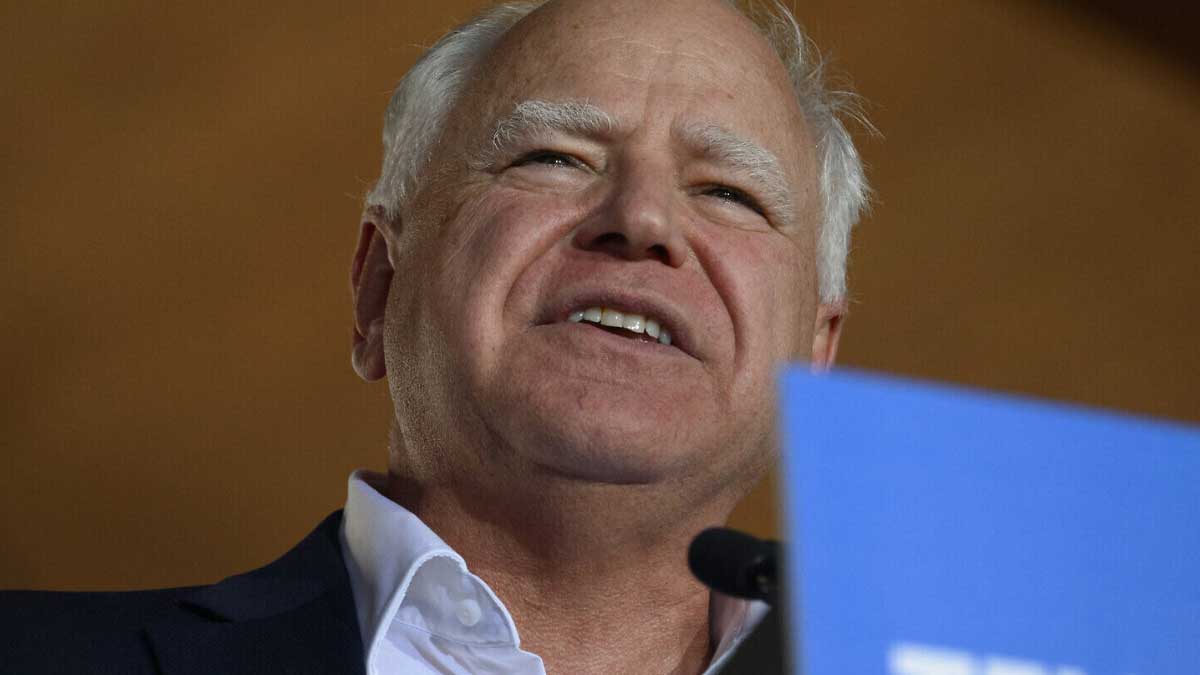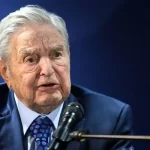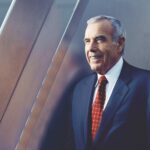- Home
- Billionaires
- Investing Newsletters
- 193CC 1000
- Article Layout 2
- Article Layout 3
- Article Layout 4
- Article Layout 5
- Article Layout 6
- Article Layout 7
- Article Layout 8
- Article Layout 9
- Article Layout 10
- Article Layout 11
- Article Layout 12
- Article Layout 13
- Article Layout 14
- Article Sidebar
- Post Format
- pages
- Archive Layouts
- Post Gallery
- Post Video Background
- Post Review
- Sponsored Post
- Leadership
- Business
- Money
- Small Business
- Innovation
- Shop
Recent Posts
Tim Walz Outpaces JD Vance Ahead of Vice Presidential Debate

In the lead-up to their highly anticipated vice presidential debate on Tuesday, recent polling data indicates that Minnesota Governor Tim Walz is more favorably viewed than Ohio Senator JD Vance among registered voters. The scrutiny of both candidates has intensified since they were chosen as running mates by former President Donald Trump and Vice President Kamala Harris, respectively.
According to a New York Times/Siena College poll released on Saturday, Walz enjoys a higher favorability rating among Midwestern voters compared to Vance. Specifically, 44% of respondents reported a favorable opinion of Walz, while 41% viewed him unfavorably. In contrast, Vance received a favorable rating from only 42% of voters, with a higher unfavorable rating of 48%. This stark contrast highlights a crucial aspect of the candidates’ public perceptions as they prepare to face off.
The poll also revealed that voters associate more positive traits with Walz. A greater number of respondents described him as “honest” and “trustworthy” compared to Vance. This sentiment was gathered from a survey conducted between September 21-26, which focused on voters in key Midwestern states, including Michigan, Ohio, and Wisconsin, and carried a margin of error of ±2.5 points. The favorable impressions of Walz appear to resonate even in an era where political skepticism is common.
A separate poll from the Associated Press and NORC Center for Public Affairs Research, released on September 24, further substantiated these findings. This survey indicated that only 32% of participants held an unfavorable opinion of Walz, while a significant 57% expressed unfavorable views of Vance. Conducted from September 12-16 with a sample size of 1,771 registered voters, this poll carried a margin of error of ±3.4 points.
One noteworthy aspect of the findings is Walz’s broader appeal across party lines. The data shows that 11% of Republican voters expressed a favorable opinion of Walz, while only 4% of Democratic voters viewed Vance positively. This cross-party appeal could be instrumental in the upcoming debate, where both candidates will aim to solidify their bases while also reaching out to undecided voters.
Earlier polling data supports the trend showing Walz’s more favorable standing. A USA Today/Suffolk University poll released on September 5 revealed that 48% of likely voters had a favorable impression of Walz, contrasted with just 36% who found him unfavorable. Vance, meanwhile, had only 37% favorability against a 49% unfavorable rating, based on a survey conducted from August 25-28 with a margin of error of ±3.1 points.
Additionally, a poll conducted by AP and NORC from August 8-12 showed Walz with a favorable rating of 39% compared to Vance’s 29%, with the latter carrying a notable unfavorable rating of 48%. This consistent trend across multiple polls indicates a growing recognition of Walz’s political profile, particularly as he emerges as a central figure in this election cycle.
As both candidates prepare for their debate on CBS, it’s important to note that a significant portion of registered voters still remain unfamiliar with them. In the September AP poll, 25% of respondents indicated they did not know enough about Walz, while 21% felt the same about Vance. This indicates an opportunity for both candidates to define themselves and expand their appeal to a broader audience during the debate.
An intriguing detail from the New York Times/Siena College poll is that Walz was the only candidate in either party’s ticket to have more supporters than detractors among voters in Michigan, Ohio, and Wisconsin. This distinction could play a pivotal role in shaping voter perceptions as the campaign progresses.
Experts have previously questioned the influence of vice presidential picks on election outcomes. However, given the competitive nature of the upcoming November race, even minor advantages gained from vice presidential candidates could be critical. Current FiveThirtyEight averages indicate that Harris has effectively narrowed the gap, now leading Trump by nearly three points—a shift that reflects the ongoing volatility in the race.
Both campaigns have framed their vice presidential selections as candidates who can resonate with voters in pivotal Midwestern swing states. While Vance is perceived as a loyalist to Trump and an appealing figure to his MAGA base, Walz has garnered support from parts of the Democratic base for his alignment with progressive priorities.
Joel Goldstein, a professor emeritus at Saint Louis University and an expert on vice presidencies, noted that although voters primarily base their choices on presidential candidates, the selection of running mates offers insights into their decision-making processes. These selections can also influence electoral dynamics in their home states, although neither Minnesota nor Ohio is currently viewed as likely swing states.
In terms of financial backgrounds, Vance’s estimated net worth stands at approximately $10 million, primarily derived from his bestselling memoir “Hillbilly Elegy” and real estate investments, which are estimated to total around $4 million. In comparison, Walz’s net worth is slightly over $1 million, based mainly on the pensions he and his wife receive for their careers in teaching and government service. Walz does not own any property, stocks, or bonds, highlighting a stark contrast in the candidates’ financial situations.
As Walz continues to gain recognition following his selection as Harris’ running mate, observers will be keen to see how this affects the shifting dynamics leading up to the debate and beyond. The upcoming event promises to be a significant moment in the campaign, as both candidates seek to enhance their visibility and strengthen their electoral positions.
Recent Posts
Categories
- 193cc Digital Assets2
- 5G1
- Aerospace & Defense48
- AI37
- Arts3
- Banking & Insurance11
- Big Data3
- Billionaires819
- Boats & Planes1
- Business332
- Careers13
- Cars & Bikes79
- CEO Network1
- CFO Network17
- CHRO Network1
- CIO Network1
- Cloud10
- CMO Network18
- Commercial Real Estate7
- Consultant1
- Consumer Tech194
- CxO1
- Cybersecurity73
- Dining1
- Diversity, Equity & Inclusion4
- Education7
- Energy8
- Enterprise Tech29
- Events11
- Fintech1
- Food & Drink2
- Franchises1
- Freelance1
- Future Of Work2
- Games149
- GIG1
- Healthcare79
- Hollywood & Entertainment203
- Houses1
- Innovation46
- Investing2
- Investing Newsletters4
- Leadership65
- Lifestyle11
- Manufacturing1
- Markets20
- Media195
- Mobile phone1
- Money13
- Personal Finance2
- Policy569
- Real Estate1
- Research6
- Retail1
- Retirement1
- Small Business1
- SportsMoney42
- Style & Beauty1
- Success Income1
- Taxes2
- Travel10
- Uncategorized12
- Vices1
- Watches & Jewelry2
- world's billionaires788
Related Articles
South Korea Plane Crash: A Tragic Loss and Global Mourning
The tragic plane crash at South Korea’s Muan International Airport on Sunday...
By 193cc Agency CouncilDecember 30, 2024H-1B Visa Debate Splits Trump Allies and Silicon Valley
The debate over H-1B visas has once again become a contentious issue,...
By 193cc Agency CouncilDecember 28, 2024Trump Moves $4B Stake in Truth Social Parent, Stock Drops 6%
Donald Trump recently transferred his 57% stake in Trump Media & Technology...
By 193cc Agency CouncilDecember 20, 2024House Rejects Trump-Backed Funding Bill, Shutdown Looms
The U.S. House of Representatives rejected a new government funding bill on...
By 193cc Agency CouncilDecember 20, 2024















Leave a comment